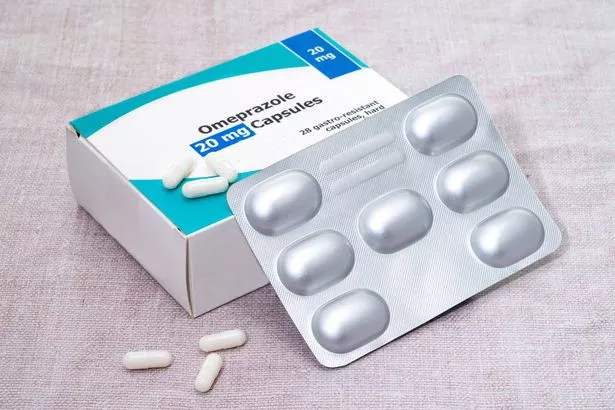The warning comes just weeks after the NHS reminded people of the long-term risks of the drugCharlotte Smith and Lottie Gibbons Executive editor SEO and engagement
09:13, 30 Oct 2025
 Dr Punam explains what’s behind the concern, the warning signs to watch out for, and how to manage symptoms safely(Image: BBC Morning Live)
Dr Punam explains what’s behind the concern, the warning signs to watch out for, and how to manage symptoms safely(Image: BBC Morning Live)
A doctor has issued a warning to anyone taking proton pump inhibitors (PPIs) like omeprazole. BBC Morning Live’s Dr Punam Krishan said people taking the medication – typically for issues like heartburn, acid reflux, and indigestion – need to be careful if they are taking it for a long time.
Dr Punam, a practising NHS GP and resident doctor on the BBC programme, emphasised the importance of having regular check-ups if you are taking PPIs. The NHS GP told hosts Gethin Jones and Helen Skelton: “Essentially these medications aren’t there to be used unnecessarily or for a long period of time.
“They do require us to review them. And that’s because if used over a long period of time, they can slightly increase your risk of things like low magnesium and low vitamin B12 but also increase the risk of gut infections, particularly Clostridioides difficile. We call that C. diff for short.”
Dr Punam added: “Now, we have this bacteria in our bowel; you and I, we all have it, and it lives in balance. However, medications like PPIs can tip that balance. And if you get an overgrowth of this bacterium, it can cause persistent diarrhoea. That is a red flag.
“So you do need to speak to your doctor if that is an issue and you suddenly start developing diarrhoea. Or if you’ve got a change in bowel habit, we always say check in with your doctor. Just make sure that you are getting those reviews with your GP.”
The warning comes just weeks after the NHS reminded people of the long-term risks of the drug, reports the Mirror.
The NHS said on its website: “Do not take omeprazole for longer than two weeks if you bought it without a prescription. See a GP if your symptoms get worse or do not get better.”
In the UK, one in four adults is affected by acid reflux, and many people will experience it at some point in their lives, especially after large meals.
 A box and blister pack of Omeprazole pills(Image: Getty)
A box and blister pack of Omeprazole pills(Image: Getty)
People who suffer from it consistently may be prescribed PPIs like omeprazole to help deal with symptoms.
Common PPIs include Omeprazole (Prilosec), Esomeprazole (Nexium), Lansoprazole (Prevacid), Pantoprazole (Protonix), and Rabeprazole (AcipHex).
The latest figures reveal that in England, 73 million NHS prescriptions for all PPIs were issued throughout 2022 to 2023, with omeprazole ranking as one of the two most commonly prescribed medications.
Dr Punam said: “Acid reflux is all about what happens in your stomach. So we all have acid in our stomachs, and it has a very important role. The role of that is to break down and digest the food. Now, at the top of the stomach, we have a little valve, a sphincter, and it acts like a trapdoor.
“And its job is to basically seal the contents so the acid is not essentially tracking back up the food pipe, your oesophagus. However, if that sphincter, that valve, becomes too loose, it can become very relaxed by things like heavy meals. If you’ve had alcohol, if you lie down straight after having a heavy meal, that can actually mean that that acid from the stomach can end up creeping back up the food pipe and cause that heavy, pressured burning sensation that people get.”
When to consult a GP
If you’re taking omeprazole without a prescription, don’t continue for more than a fortnight. You should consult a doctor if:
Your symptoms haven’t improved after a fortnight.Your symptoms get worse.Your symptoms come back sooner than four months after completing treatment.You develop concerning symptoms such as difficulty swallowing, bloody vomit, or black stools.
If your GP has prescribed omeprazole for prolonged use, they should keep you under regular review. If your doctor advises omeprazole for more than a year, it’s vital to have routine check-ups to minimise the risk of experiencing long-term side effects.
Indicators of low magnesium include muscle cramps, tiredness, and an irregular heartbeat, alongside less specific symptoms such as loss of appetite, nausea, and weakness.
More serious deficiencies can result in numbness, tingling, personality changes, seizures, and abnormal heart rhythms.
Signs of low vitamin B12 include fatigue, weakness, pale skin, and a sore or swollen red tongue.
Other symptoms can include neurological issues like pins and needles, difficulty with balance, and memory problems, as well as shortness of breath, heart palpitations, and digestive problems.
Symptoms of a C. diff gut infection are watery diarrhoea, stomach cramps and pain, a high temperature (fever), nausea, loss of appetite, and dehydration.
In severe cases, complications can arise, such as life-threatening inflammation of the intestines.

